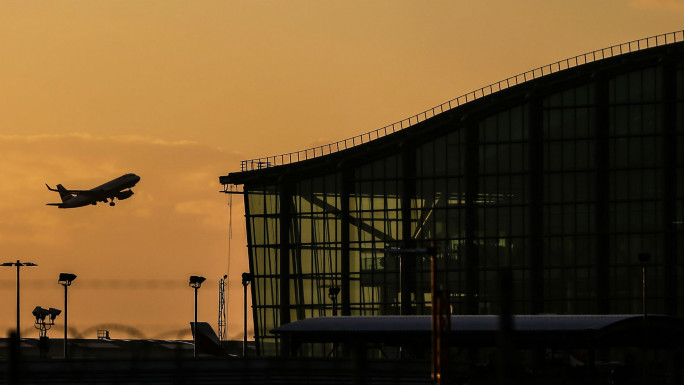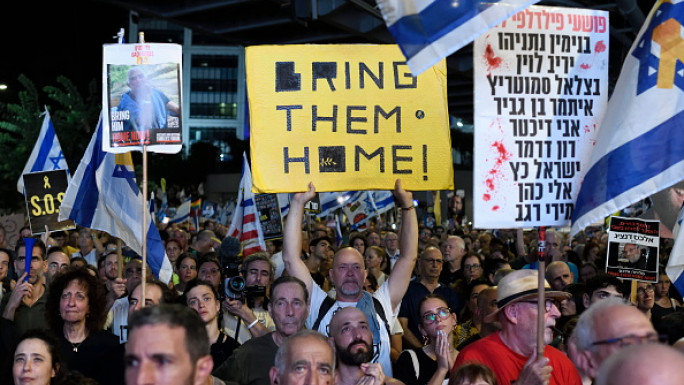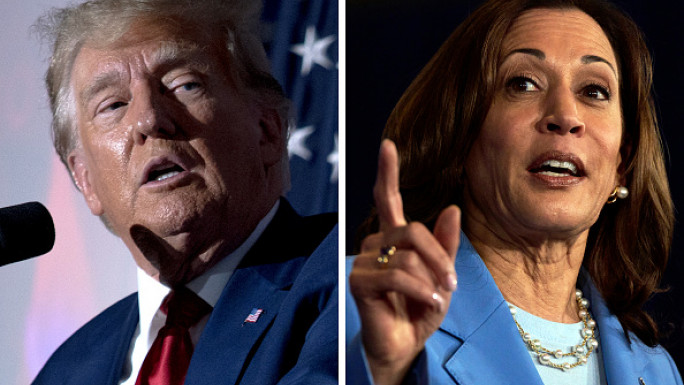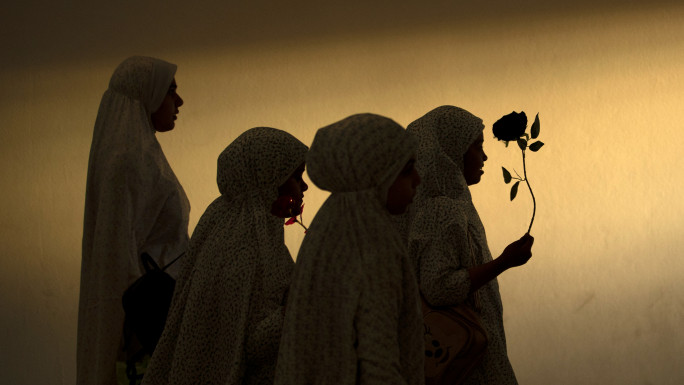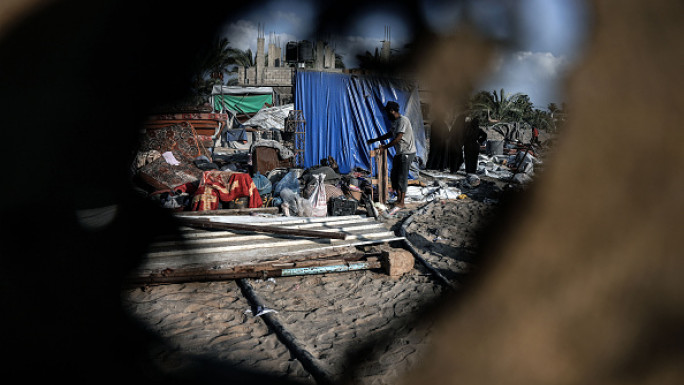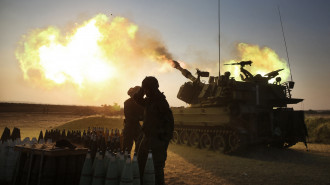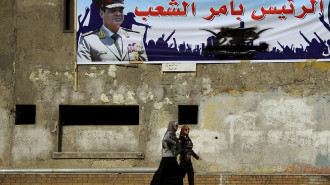
How the Gaza war highlights Bosnia's internal divisions

The past ten months of Israel’s war on Gaza have brought out powerful emotions in the Western Balkans.
Governments in this part of Europe have responded in various ways to the conflict, with each considering public opinion at home and geopolitical dynamics vis-à-vis the EU, the US, Israel, Arab states, Turkey, Iran, and Russia.
In Bosnia and Herzegovina (BiH), although Israel’s war in Gaza has not produced major political shifts within the country, it has served to increase polarisation. Nonetheless, there is generally a pro-Palestinian sentiment shared by the majority of BiH’s population across the three main ethnic communities - Bosnian Serbs, Bosniaks, and Bosnian Croats.
Bosnia's political divisions
Based on the US-brokered Dayton Agreement, which aimed to resolve the Bosnian civil war (1992-95), there are two main entities that make up the Bosnian state. These are the Federation of Bosnia and Herzegovina, which is home to the majority of Bosniaks and Bosnian Croats, and the Republika Srpska, where almost all of BiH’s Bosnian Serbs live.
The capital, Sarajevo, is in the Federation of Bosnia and Herzegovina. Banja Luka is Republika Srpska’s administrative centre. There is also Brčko District, situated in north-eastern BiH along the Serbian border. This small condominium separates Republika Srpska into two parts.
Many Bosnian Serbs share a dream of belonging to “Greater Serbia”. Milorad Dodik, president of Republika Srpska, has spent years pursuing a separatist agenda that entails not only speaking about independence but also obstructing implementation of the Dayton Accords in various ways.
Nonetheless, many experts do not believe that Republika Srpska achieving independence or joining Serbia would be realistic and maintain that it will probably remain within BiH albeit with many unresolved tensions highlighting the fragility and complexity of BiH’s delicate Daytonian equilibrium.
Under the Bosnian constitution, Sarajevo is where BiH’s foreign policy decisions are made. Yet, there are many issues on the international stage that Sarajevo responds to in certain ways that Bosnian Serb officials in Banja Luka oppose.
For example, when Russia waged its full-scale invasion of Ukraine in February 2022, Republika Srpska sided with Moscow while the Federation of Bosnia and Herzegovina supported Kyiv.
Bosnia and the Gaza war
In response to the Gaza war, the power brokers in Banja Luka have been supporting Israel while the government in Sarajevo has had more of a fragmented response, which is reflective of deep ethnic and political divisions characteristic of BiH’s state policies.
“There is no unified state stance, with multiple positions emerging within the country. The Bosnian Croat and Bosnian Serb political elites often pursue parallel policies that diverge from those of the pro-Bosnian political factions in Sarajevo,” Dr Jahja Muhasilović, a geopolitical analyst and an associate professor at the International University of Sarajevo, told The New Arab.
“Within the pro-Bosnian camp itself, internal divisions further impede the formulation of a cohesive state policy.”
However, the authorities in Sarajevo see a need for peace and stability in the Middle East, hoping for the Gaza war and other regional conflicts to quickly wind down.
“Instability in the region carries the potential to trigger broader destabilising effects in the Balkans, including illegal migration, societal polarisation, and the exacerbation of local tensions should the conflict escalate into a regional or global confrontation,” added Dr Muhasilović.
Bosnian Serb power brokers support Israel
Led by Dodik, the leadership in Republika Srpska has been supporting Israel throughout this war. This has been no surprise. Republika Srpska and Israel enjoy a history of ties. Dodik and those around him frame their support for Israel’s war on Gaza within the context of fighting terrorism and Islamic extremism.
“Politicians mostly manipulate [the] part of the events in Gaza that suits their agenda. [Some Bosnian Serb] politicians regret the suffering of innocent civilians, but they ‘justify’ Israel's action because of the Hamas attack,” Tanja Topić, a journalist and head of the Friedrich Ebert Foundation office in Banja Luka, told TNA.
In 2014, when Israel was waging Operation Protective Edge in Gaza, Dodik expressed unequivocal support for Tel Aviv. “The terrorist threats and actions of extreme Islamic groups are a threat to the entire world,” wrote the Bosnian Serb strongman in a letter to Israeli Prime Minister Benjamin Netanyahu.
When speaking to the Jerusalem Post in June, Dodik mentioned that the Israeli flag’s colours were projected onto the Palace of the Republic in Banja Luka, which is the Bosnian Serb president’s official residence, on the night of 7 October. “Whenever Israel needs solidarity, the Israeli flag will appear over this building, while in Sarajevo they project the Palestinian flag,” said Dodik.
Dodik’s relationship with Israel’s former foreign minister Avigdor Lieberman has been an important part of the picture. Over the years, the two have met in Israel, Republika Srpska, and Austria. Dodik had also been close to the late Israeli president Shimon Peres.
|
|
It was Israel’s lobbying efforts in Banja Luka which prompted the Bosnian Serbs to prevent BiH, a then-UN Security Council member, from being the ninth vote on the body in favour of Palestinian statehood. This prevented the US from having to use its veto authority, which Israel considered an achievement as it eased pressure on Washington and the pro-Israel lobby in America.
Some ideational dynamics are in play too. Dodik speaks about Serbs and Jewish Israelis sharing a history of suffering during the era of Nazi Germany. “The suffering that our two peoples experienced in the last century caused by the same armies has brought us closer. That is why no one in this part of the world can better understand the Jewish people as can Serbs, and that is why Israel has our support,” claimed Dodik in 2022.
Islamophobia is another factor contributing to the firmly pro-Israel stance taken by the Bosnian Serb strongman in Banja Luka. This is also the case with Hungarian Prime Minister Viktor Orban, who maintains an extremely close relationship with Dodik and whose government is a strong supporter of Republika Srpska and Israel.
“Dodik enjoys close relations with white supremacist and ultra-nationalist factions in Europe, which often express pro-Israel sentiments. Consequently, he has tailored his rhetoric to resonate with these European ultra-nationalist and populist figures,” Dr Muhasilović told TNA.
Yet, despite ideological and ideational dynamics in play, some experts maintain that Dodik’s pro-Israel stances are more strategic in nature. Understanding such stances requires taking stock of Republika Srpska’s increasingly problematic relations with the West.
Viewing Dodik’s anti-Dayton behaviour as a threat to stability in the Western Balkans, Washington has been imposing sanctions on Dodik and various other individuals and entities in Republika Srpska since 2017. The UK has also implemented sanctions while Germany too has joined Washington and London in putting pressure on the Bosnian Serb statelet.
Dodik is playing a “game” vis-à-vis Israel in an effort to try to “save his position and stay in political life,” said Dr Saša Čekrlija, Director of the Center for Asian Studies and former advisor to BiH’s Minister of Foreign Affairs, in a TNA interview.
Dodik sees the Gaza war as a “great opportunity to curry favour with the US through active support for Israel,” mentioned Dr Čekrlija. With Western sanctions taking more of a toll on Republika Srpska’s economy, Dodik views the pro-Israel card as something which can help solve his issues with policymakers in Washington.
“Dodik seeks to frame Bosniaks, particularly the Party of Democratic Action (SDA), as part of the global Muslim Brotherhood network, thereby justifying his anti-Bosniak policies and seeking to alleviate the economic and political pressures emanating from the West,” commented Dr Muhasilović.
“Moreover, by portraying himself as a bulwark against the spread of political Islam in Europe, under the guise of defending Judeo-Christian civilisation, Dodik aims to secure Western and Israeli support for his broader agenda of subjugating BiH and its institutions,” he added.
“Hypothetically speaking, if tomorrow the US completely withheld support for Israel and sided with Palestine, [Dodik] would instantly forget about Israel,” said Dr Čekrlija.
However, one must distinguish between the attitudes of the political leadership in Banja Luka and Republika Srpska’s general population. Average citizens in the Bosnian Serb entity do not have such an affinity for Israel. In fact, while in Banja Luka last month, TNA observed that many Bosnian Serbs have significant amounts of empathy for the Palestinians, seeing Gaza’s struggle today through the lens of their own experiences in the 1990s.
“[Dodik’s] overt support for Israel is constrained by the pro-Palestinian leanings of the Serb population, a position influenced by Russia’s divergent stance on the conflict,” noted Dr Muhasilović.
"In Bosnia and Herzegovina, like in many countries, there has been a chorus of criticism of the West for its double standards concerning Israel's war on Gaza"
Bosniaks in solidarity with Palestine
Bosniaks have taken a firmly pro-Palestinian stance and they have been extremely outspoken in their solidarity with Palestine since Israel’s war on Gaza began last year.
Even before October 2023, Bosniaks had projected the Palestinian flag on the Old Bridge in Mostar, an iconic landmark in BiH. During this year’s Srebrenica genocide memorial ceremony, Bosniaks flew the Palestinian flag on the bridge. There have also been Gaza solidarity protests in Sarajevo throughout this ongoing conflict.
Among Bosniaks, solidarity with the Palestinians is at a level whereby their support for Ukrainian President Volodymyr Zelenskyy and his government significantly decreased once he expressed support for Israel’s war on Gaza last year.
It is important to see the Bosniak perspective on the Gaza war within the historical context of Srebrenica. The current struggle of Palestinians in Gaza resonates with BiH’s citizens, especially the Bosniaks, given the experiences of the Bosnian civil war. “The atrocities unfolding in Gaza evoke harrowing recollections of the war period, reinforcing a sense of empathy and solidarity with the Palestinian people,” explained Dr Muhasilović.
“The Srebrenica Memorial Center has taken a measured stance, prioritising its commitment to memorialising Srebrenica over explicit expressions of solidarity with Gaza. While individual politicians may hold varying views, there is no official state position regarding the alleged genocide in Gaza. Nevertheless, it can be inferred that the majority of Bosniaks stand in solidarity with the Palestinian cause, drawing parallels to their own recent history of genocide,” he added.
|
|
Bosnian Croats
Segments of BiH’s Croat population tend to align with Israel. This is especially so among Croat nationalist circles. Bosnian Croat leader Dragan Čović maintains ties with Israeli businessman Amir Gross while the Croatian Democratic Union of BiH (HDZ BiH) has a deep relationship with Zionist elements, explained Dr Muhasilović.
In February, Čović met with Israel’s non-resident ambassador to BiH Galit Peleg. The Bosnian Croat leader expressed “both sympathy and understanding for Israel’s need to protect its citizens from the rule of Hamas” and affirmed that Israel enjoys the “support of the Croatian people in [BiH].”
In BiH, like in many countries, there has been a chorus of criticism of the West for its double standards concerning Israel’s war on Gaza, which many people in BiH view as consistent with the West’s indifference to the Bosniaks in the 1990s.
This dynamic has resulted in growing anti-Western attitudes in BiH. This trend has “gained momentum following the West’s controversial suspension of BiH’s Constitution, which facilitated HDZ BiH's ascendancy as a kingmaker in the Federation of BiH,” Dr Muhasilović told TNA.
“The close ties between HDZ BiH and Israeli business interests further aggravate this sentiment,” he added.
The human angle
Ultimately, any analysis of BiH’s response to the Gaza war requires appreciating the extent to which the Balkan country’s politics and societal dynamics are extremely complicated. The divergent stances on this conflict taken by different Bosnian politicians reflect BiH’s deep divisions and polarisation.
Politics aside, it must be said that on a human level there are few people in this world who can relate to the suffering of men, women, and children in Gaza as much as the citizens of BiH.
“Gaza has suffered too much, and the war must be stopped as soon as possible,” Dr Čekrlija told TNA.
“Many people have been killed in the war, and the sides must begin to talk about a solution. We need proposals that can stop the war. Serious politics does not compete in terms of who has more dead and which people have suffered more. One side will never recognise the other as the winner, and such an approach only prolongs the war and brings thousands and thousands of dead children,” reflected the Banja Luka-based scholar.
Giorgio Cafiero is the CEO of Gulf State Analytics.
Follow him on Twitter: @GiorgioCafiero


![Children in Gaza are getting white hair due to stress and trauma [The New Arab/Supplied]](/sites/default/files/styles/image_684x385/public/2024-09/gaza-white%20hair-supplied.jpg?h=05074998&itok=zfsWeT8P)
